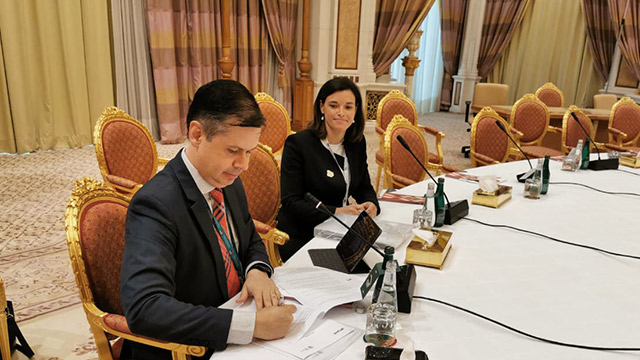928 results found
Featured results



More results
The circular economy is now core policy for a growing number of countries with leadership from Finland, the European Union and Canada, but it is also taking a strong hold in Asia as Japan and China implement circular economic policies to transition them to a sustainable inclusive future.
The Climate and Disaster Risk Screening Tools developed by the World Bank, provide a systematic, consistent, and transparent way of considering short- and long-term climate and disaster risks in project and national/sector planning processes.

The Climate and Disaster Risk Screening Tools developed by the World Bank, provide a systematic, consistent, and transparent way of considering short- and long-term climate and disaster risks in project and national/sector planning processes.

In an effort to serve as a 'one stop shop' for climate-related information, data, and tools, the World Bank created the Climate Change Knowledge Portal (or CCKP).

The LTIIA's report on Climate-Resilient Infrastructure: How to scale up private investment examines the current state of climate-resilient infrastructure investment and brings forward recommendations and proposals.

Cloud platforms for electric vehicle charging enables scaling up of EV charging operations by helping to manage wide charging networks more efficiently.
This analysis was drawn from the GI Hub's InfraCompass tool. The case study reflects on how Colombia has undergone a long period of transition to become an emerging economy leader.
The QII Principles are voluntary, non-binding principles that reflect a common strategic direction and aspiration for quality infrastructure investment.

The QII Principles are voluntary, non-binding principles that reflect a common strategic direction and aspiration for quality infrastructure investment.

The project consists of a road concession procurement for exploiting infrastructure and public services provision for recovery, operation, maintenance, monitoring, conservation, implementation of improvements and maintenance of the service level of the BR-262/ES Highway, in the road section between BR-101 (B) - Viana/ES - up to the frontier between ES/MG; BR-262/MG, in the road section between ES/MG frontier with BR-381/MG - João Monlevade/MG; and BR-381/MG, in the road section between Belo Horizonte/MG to Governador Valadares/MG
The Decision Tree Framework is a robust decision scaling approach from the World Bank that provides resource-limited project planners and program managers with a cost-effective and effort-efficient, scientifically defensible, repeatable, and clear method for demonstrating the robustness of a project to climate change.

The LPI provides valuable information for policymakers, traders, and other stakeholders, including researchers and academics, on the role of logistics for growth and the policies needed to support logistics in areas such as infrastructure planning, service provision, and cross-border trade and transport facilitation.

Connections is a series of concise knowledge notes from the World Bank Group’s Transport and ICT Global Practice. Connections discusses projects, experiences, and front-line developments in Transport and ICT. This set includes notes from 2015 and 2016.


This publication consists of analysis on the relationship between GDP growth and traffic growth and converting emerging market growth into investment opportunities.


This technical note contains a methodology to promote the use of good corporate governance practices for water and sanitation enterprises (especially SOEs) in Latin America and the Caribbean, based on IDB experiences and other relevant cases from network utilities.

This article presents results from the first statistically significant study of cost escalation in transportation infrastructure projects.


This simple and free tool enables project proponents to easily conduct early-stage cost-benefit analyses of bus transport projects.


This report outlines an approach to country platforms to help channel technical assistance and public and private finance to emerging and developing countries in order to support the achievement of net zero targets.

Accelerating the development of Brazil’s infrastructure markets is the aim of Global Infrastructure Hub’s (GI Hub) Country Program with Brazil, recently confirmed in a Letter of Intent with the nation’s Secretary of International Economic Affairs (SAIN) of the Ministry of Economy.



 InfraChallenge
InfraChallenge





